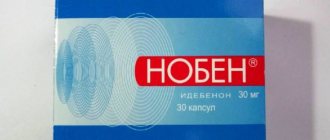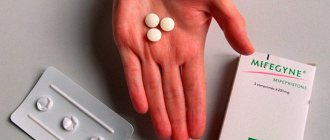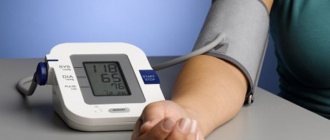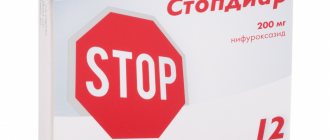Analogs and cheap substitutes
The only generic (non-patented analogue) of Actovegin is the drug Solcoseryl (the same active ingredient and indications for use and almost the same cost of 600-1700 rubles, depending on the form of the drug).
Actovegin is produced in Austria by a branch of the Swiss pharmaceutical company Nykomed, and Solcoseryl is produced in Germany. The drugs are made from the blood of Austrian and German calves, but in no Western European country is this medicine allowed not only for use, but also for sale.
It is also worth remembering that cattle are susceptible to so-called slow prion infections (including “mad cow disease,” to which humans are susceptible). The pathogen can enter the body through parenteral administration of the drug; it is stable to high temperatures and antiseptics. Prion infection proceeds slowly (the incubation period can reach 8 years), and the clinical manifestations are disguised as other diseases. A case of release of a batch of Actovegin from raw materials that did not undergo appropriate control was registered.
Conditional analogues of Actovegin on the Russian market:
- Cerebrolysin;
- Cortexin;
- Mildronate;
- Mexidol.
Dosages in the instructions and methods of use of Actovegin
The injection solution is used for intravenous and intramuscular administration:
- Depending on the complexity of the pathological process, Actovegin is used in dosages from 10 to 20 ml IV, then the volume changes to 5 ml. The drug is prescribed daily or several times a week.
- For metabolic and blood circulation disorders in the GM - two weeks, 10 ml every day, the next month - from 5 to 10 ml several times a week.
- Ischemic stroke, arterial angiopathy - from 20 to 50 ml mixed with infusion solution (300 ml). Therapy is carried out for 2-3 weeks.
- Trophic ulcers, burns - 5 ml IM or 10 ml IV. This dosage is prescribed 1-2 times a day, with additional local therapy with another form of Actovegin.
Prevention and treatment of skin pathologies requires daily administration of 5 ml of the product intravenously, in between radiation exposures.
The solution for infusion is prescribed according to a different scheme:
- the medicine is injected into the veins or arteries, the final doses depend on the condition of the body;
- the daily norm is 250 ml, later it is increased to 500 ml;
- The therapeutic course includes 10-20 manipulations.
The dropper speed should not exceed 2 ml per minute. The solution should not penetrate into tissues adjacent to blood vessels.
The instructions for the tablets indicate that they should not be chewed, but should be taken before meals and washed down with a small amount of liquid. From 1 to 2 pieces are prescribed three times a day, the duration of treatment is 1-1.5 months.
For diabetic polyneuropathy, the medication is administered intravenously, 2 g per day (3 weeks), then switched to tablets - up to 3 pieces per day, for 4 months.
conclusions
At the moment, Actovegin has not undergone a single study according to the GHP rules (the international code of quality medical practice that guides scientists in conducting clinical trials). But at the same time, the company producing the drug does not set such a goal, since a strong evidence base is not required for the fish to enter the main market (CIS countries).
According to studies of medical records of patients with hypertension who were hospitalized, it was revealed that the percentage of money spent on treatment with Actovegin averaged 17% of the total amount. This is irrational spending on a drug without an evidence base for hypertension and concomitant conditions, and its inclusion in the prescription lists is impractical.
Indications, contraindications and adverse reactions during treatment with Actovegin
The medication in tablets is recommended for use in patients with certain diseases:
- in complex therapy of metabolic and vascular disorders associated with dementia, ischemic stroke, circulatory failure, and head injury;
- diabetic polyneuropathy, trophic ulcers, angiopathy.
Injection solutions and droppers with Actovegin are prescribed for similar diseases and conditions as for tablets.
Direct contraindications for therapeutic procedures are:
- pulmonary edema;
- fluid retention in tissues;
- decreased daily urine production, anuria;
- individual allergic reactions to the component composition;
- heart failure in the decompensation phase.
Actovegin rarely causes adverse reactions and is well tolerated by most patients. Sometimes during treatment the following is recorded:
- swelling, urticaria, fever, sweating, hot flashes and other allergy symptoms;
- nausea with vomiting, dyspepsia, epigastric pain, stool disorders;
- state of weakness, cephalalgia, attacks of dizziness, short-term fainting, involuntary trembling of the body, decreased blood pressure or hypertensive symptoms;
- painful sensations in the chest area, paleness of the skin, shortness of breath, rapid heartbeat;
- rapid breathing, problems with swallowing, discomfort in the throat and chest, feeling of suffocation;
- pain in the lumbar area, joints and bones.
If adverse reactions to treatment occur, it is necessary to consult your doctor and replace Actovegin with an analogue.
Contraindications and negative reactions of the body
The main contraindication for the use of Actovegin ointment, the instructions for use warn about this, is hypersensitivity to the components of the drug. Due to individual intolerance to the drug, local allergic reactions may occur. To check the body's reactions, before using the ointment, apply a small amount to the inside of the wrist. If after a couple of hours there is no redness of the skin or discomfort, Actovegin ointment can be used.
Due to the natural composition of the product, there is no categorical ban on its use during pregnancy and lactation. But at the same time, you should use the ointment only if there are indications and recommendations from a doctor.
In practice, Actovegin ointment was well tolerated. Only with hypersensitivity are local allergic reactions possible. In this case, the use of ointment should be abandoned. To eliminate side effects, it is recommended to take antihistamines.
Actovegin 200 mg 50 pcs. film-coated tablets
Composition and release form Actovegin 200 mg 50 pcs. film-coated tablets
Tablets - 1 tablet.
contains blood components: deproteinized hemoderivative of calf blood 200.0 mg, in the form of Atovegin® granulate* 345.0 mg. *Actovegin® granulate contains:
- active substance: blood components: deproteinized hemoderivative of calf blood - 200.0 mg;
- excipients: povidone-K 90 - 10.0 mg, microcrystalline cellulose - 135.0 mg.
- Excipients: magnesium stearate - 2.0 mg, talc - 3.0 mg.
- Shell composition: acacia gum - 6.8 mg, mountain glycol wax - 0.1 mg, hypromellose phthalate - 29.45 mg, diethyl phthalate - 11.8 mg, quinoline yellow aluminum varnish dye - 2.0 mg, macrogol-6000 - 2.95 mg, povidone-K 30 - 1.54 mg , sucrose - 52.3 mg, talc - 42.2 mg, titanium dioxide - 0.86 mg.
50 pcs. - dark glass bottles (1) - cardboard packs.
Description of the dosage form
Greenish-yellow film-coated tablets, shiny, round, biconvex.
Directions for use and doses
Dosage and method of use of Actovegin
depend on the nosological form and severity of the disease. 1-2 tablets are prescribed orally 3 times a day before meals. Do not chew the pills, wash them down with a small amount of water. For intravenous or intravenous administration, depending on the severity of the disease, the initial dose of the drug in the form of an injection solution is 10-20 ml. Then prescribe 5 ml IV slowly or IM 1 time/day daily or several times a week.
A solution for infusion with sodium chloride 20%, a solution for infusion with sodium chloride 10%, a solution for infusion 10% with dextrose is administered intravenously by drip or intravenous injection.
In case of disorders of blood supply and metabolism of the brain, initially 250-500 ml/day is administered intravenously for 2 weeks, then 250 ml intravenously several times a week for at least 4 weeks.
For ischemic stroke, 250-500 ml is administered intravenously daily or several times a week for about 2-3 weeks.
For arterial angiopathy, 250 ml is administered intravenously and intravenously daily or several times a week; Duration of therapy is about 4 weeks.
For trophic and other indolent ulcers and burns, 250 ml is administered intravenously daily or several times a week, depending on the speed of healing, in addition to local therapy with Actovegin
. In order to prevent and treat radiation damage to the skin and mucous membranes, an average of 250 ml is administered intravenously the day before and daily during radiation therapy, as well as for 2 weeks after its completion.
Rules for administering solutions Actovegin solutions for infusion with sodium chloride 20% and 10% and with dextrose 10% are intended for intravenous drip or intravenous jet administration.
Before starting Actovegin infusion, you must ensure the integrity of the bottle. The solution for infusion is administered in a dose of 250 ml. The initial dose can be increased to 500 ml. The infusion rate is approximately 2 ml/min. 10-20 infusions may be required to achieve the desired effect. During infusion, care must be taken to ensure that the solution does not enter extravascular tissue.
Indications for use Actovegin 200 mg 50 pcs. film-coated tablets
- Trophic ulcers;
- bedsores;
- slow-healing wounds;
- cerebrovascular accidents;
- traumatic brain injuries;
- complications of varicose veins of the lower extremities;
- burns;
- corneal damage.
Contraindications
hypersensitivity to the drug Actovegin
.
Application Actovegin 200 mg 50 pcs. film-coated tablets during pregnancy and breastfeeding
It is possible to use the drug Actovegin
orally or parenterally during pregnancy and lactation as indicated.
special instructions
If allergic reactions occur, treatment is stopped. Inject slowly and not more than 5 ml intramuscularly (the solution has hypertonic properties). With repeated infusions, indicators of water and electrolyte metabolism are monitored. The infusion solution has a slightly yellowish tint, the intensity of which depends on the batch number and the starting material, but the color of the solution does not affect the effectiveness or tolerability of the drug. After opening the bottle, the solution cannot be stored. It is not permissible to use the stored solution. You cannot add any medications to the Actovegin® infusion solution due to possible pharmaceutical incompatibility. As with all other drugs intended for parenteral administration, before infusion of the Actovegin® solution, you must ensure that the vial is intact.
Indications
Actovegin ointment, the price of which is affordable, is prescribed in the presence of damage to the skin in order to speed up healing. The product is indicated for the treatment of any wounds. These can be cuts, scratches, etc. It is used to treat inflammatory processes, radiation injuries on the skin and mucous membranes
Indications for use of the product are:
- Trophic ulcers that occur with varicose veins or diabetic angipatia.
- Bedsores caused by prolonged immobility of seriously ill patients.
- Burns that can occur as a result of thermal or chemical exposure, or during prolonged exposure to the sun.
Peculiarities
- Actovegin ointment belongs to a group of drugs that accelerate tissue regeneration processes. It is a white substance with a uniform consistency. The product is supplied in aluminum tubes of various sizes.
- The active component in Actovegin ointment is a deproteinized hemoderivative. This is a natural component that is obtained from the blood of calves during dialysis and ultrafiltration. The natural substance contains more than two hundred biologically active substances. In this regard, it is impossible to accurately describe the mechanism of action of the drug. The main substances in the composition of the hemoderivat:
- Amino acids important for the body.
- Compounds of peptides and carbohydrates.
- Nucleotides.
- Cholesterol.
- All of these components are natural to the human body, so the drug is well tolerated.
- Actovegin ointment has a pronounced antihypoxic effect. That is, when using the ointment, it is possible to compensate for the lack of oxygen in tissue cells, and, therefore, accelerate the regeneration processes. In addition, the use of the product increases the concentration of amino acids, improves blood circulation and normalizes metabolism at the cellular level.








